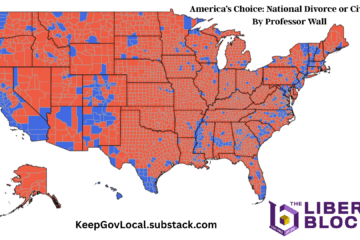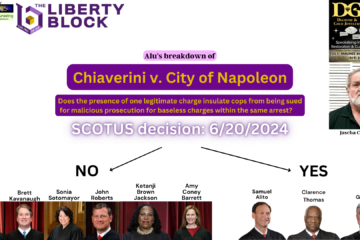“Secession is in Texas’ DNA!”, exclaimed a large Texan man in a suit with an exquisite Texas flag belt buckle.
The scene: a panel at Porcfest 2021 about the case for secession as the means for achieving liberty. Amongst the guests were the aforementioned Texan, Daniel Miller, president of the TNM and author of Texit, NHExit’s Carla Gericke, the founder of Liberty Block, Alu Axelman, Steven Axelman, (Alu’s father and) the creator of Americans United For Peaceful Separation (Americansups.com), and in on a zoom call was the president of CalExit, Marcus Ruiz Evans. I’ll leave it to you to figure out where Marcus is from.
As an individual from Wisconsin, I was intrigued. The idea of many states simply removing themselves from the grasp of the vampires we call congressmen seemed like an interesting idea, though I have my reservations, which will be noted later. As the panelists filed objections and gave their respective refutations, there came an all too glaring issue that thrust itself to the front of my mind.
“Are states like Wisconsin culturally capable of secession?”
Wisconsin is a bit of an anomaly, in my opinion. We’re basically surrounded by blue states, yet we remain a battleground state. We are 48ish percent liberal, 49ish percent conservative, and ALL NONSENSE! Aside from the Packers, cheese, and beer, we’re mostly forgotten about until the national election. We hold the door for people and avoid conflict most of the time, we tend to go with the flow. So the question presents itself again.
“Are states like Wisconsin, states that keep to themselves but don’t want to enter conflict and are muddled with nonsensical politics, capable of engaging in the emotional and cultural conflict of peacefully separating themselves from the union?” As it turns out, this question was asked already. In 2014, discussions and votes regarding secession were in the works from Liberty Republicans along with some involvement from the TEA Party. I interviewed Michael Murphy, Vice Chair of the 4th Congressional district at the time of these discussions and a major player involved with what some political scientists and j*urnalists called “A traitorous act”.
“It was purely to establish the discussion of secession, not necessarily make it happen” said Murphy. “Obamacare was really the catalyst, along with other examples of federal overreach such as the Real (national) ID. The discussion was to make people aware of the option and couple it with nullification.” Then-Governor Scott Walker stated he was opposed to the resolution, it’s not exactly the best political move when you’re hoping to run for president of the United States if you were to support the land of beer and cheese becoming Wisconistan, Paul Ryan would have an absolute fit. The non-liberty republicans were also not on board.
“They were concerned with a takeover of the GOP.” Murphy stated. So they weren’t getting help from their party and also receiving attacks from the outside by our favorite enemy of the people: J*urnalists. Names like Dan Bice, Charlie Sikes, and others gave their two cents on the subject and it was not in a positive light. When asked his actual thoughts on Secessionism and his answer to the question “Is Wisconsin culturally capable of secession?” Michael Murphy responded.
“I don’t foresee Wisconsin being anywhere near Texas’ sentiments.” he then elaborated “Secession is the nuclear option even if peaceful, for a state to go off on its own it requires- you should REALLY want to secede before you actually do.” so that adds a follow-up question.
“If liberty isn’t found in Wisconsin through secession, what is another alternative?”
Nullification.
For the uninformed nullification is the legal theory that states hold the power to nullify federal laws that it deems unconstitutional in regards to the U.S constitution. Though federal courts have never held up nullification efforts, states have used nullification in cases. One particular case was of one Joshua Glover.
Joshua Glover was a runaway slave from St. Louis seeking refuge in the city of Racine Wisconsin in 1852, In 1854 his “owner” Bennami Garland cited the Fugitive Slave Act to return Glover who was captured and put into a cell in Milwaukee. An abolitionist editor Sherman Booth incited a mob to rescue Glover who was spirited away back to Racine and then to Canada for the rest of his days. Booth however wasn’t as lucky and was prosecuted. This case was titled Ableman vs. Booth which resulted in Wisconsin declaring the Fugitive Slave Act unconstitutional, the first state to do so. However, the United States Supreme Court ruled that states cannot claim superiority to federal courts and they confer certain powers to the federal courts by being a member of the United States.
This case led to radicalization of Wisconsin politics (shocking, I know), The New Republican party ran on an anti-Federal Fugitive Slave Act platform and cleaned house in the elections. Booth ended up having a happier ending than you’d expect, as he was pardoned by Buchanan in 1961.
Though Federal Courts don’t believe in Nullification, this is but one strategy to take a look at along with Secession. Many states do currently nullify many federal laws, including immigration laws, cannabis laws, and gun laws. A familiar name in the Liberty Movement: Tom Woods (who was also at Porcfest) wrote the book on Nullification (literally) and was a guest at a nullification rally in Waukesha, so these ideas are still alive and well in our ranks and maybe beyond.
While Wisconsin may not have the strong history and culture of independence that Texas and California have, secession should certainly not be ruled out. Increasingly, people and states are becoming more divided. Conservatives and progressives now despise each other more than ever before, and that hatred will only continue to grow. As Axelman mentioned during the Porcfest panel, “if you wonder how Wisconsin residents feel about leaving the union, just ask each person in the state how they feel about people like Biden, Harris, Clinton, Trump, Pelosi, Obama, Schumer, and McConnell running their lives. That’s your answer right there!”



3 Comments
Dmitri Brooksfield · July 19, 2021 at 11:20 pm
Im happy you got something published. good job!
Bob · July 20, 2021 at 4:08 pm
“The aforementioned Daniel Miller…”?
Daniel Miller had not been mentioned yet so using the word aforementioned is incorrect in it’s use.
The Liberty Block · July 20, 2021 at 5:14 pm
He is mentioned in the opening sentence, but you make a good point. We just clarified to make it clearer. Thanks!!
What did you think of the article?
Comments are closed.